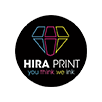Best Security Camera Systems for Cold Weather
The winter months come with a few challenges for business owners and homeowners, especially in places with regular snowfall. Any furniture or equipment you keep outside needs to be able to stand up to the drop in temperature. That includes your property’s security cameras.
Most electronics are not fit to live completely in below-freezing temperatures. But cold-weather security cameras can handle it. Here are the features you need to look for to keep your property secure every day of the year. Look for these to source the best security cameras for cold weather.
Best Features for Cold Weather Security Cameras
Superior Weather Proofing - IP67
The best cold weather security cameras should explicitly state a weather-resistant design. This means that the camera can handle high winds, heavy rain, and snow. The trick is keeping out the moisture. Even small amounts of water freezing and thawing inside of electronics can completely break them.
The gold standard for weatherproof security cameras is an IP67 rating. IP in this case means Ingress Protection, not to be confused with Internet Protocol, the most popular connection type of modern camera security system. IP 67 means that an electronic device is rated for total protection against dust, and can even be safely immersed in water up to 1m deep. If you see IP67, you can be confident that you have one of the best security cameras for cold weather and moisture protection.
Working Environment
The bestcold weather security cameras list their operational temperature range as their working environment. An excellent standard to look for is a working environment of -30°C ~ 60°C (-22°F ~ 140°F), though some cameras can operate in even colder temperatures.
A security camera’s working environment should also describe its Relative Humidity (RH). The gold standard is Humidity: ≤95%.
Proper Insulation
The overall build of the cold-weather security camera should be able to withstand cold climates. This means that the camera should have proper insulation to prevent any damage from the cold weather. That means choosing the right materials and construction for your cold-weather CCTV camera. For example, metal housings are a bad choice because they will conduct cold and heat, which can damage the camera's internal components. A good cold-weather CCTV camera should have a housing made out of plastic or another non-conductive material.
The Best Security Cameras for Cold Weather
With an IP67 protection rating and working environment as low as -30°C, Surevision IP Cameras are some of the best cold weather security cameras available.










